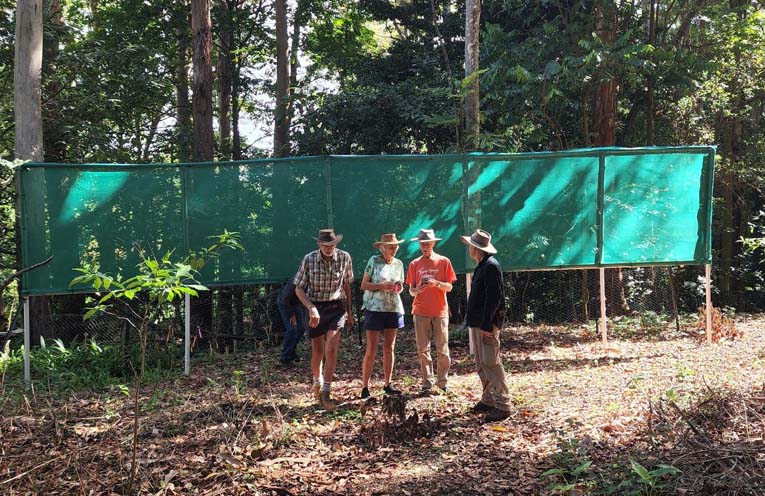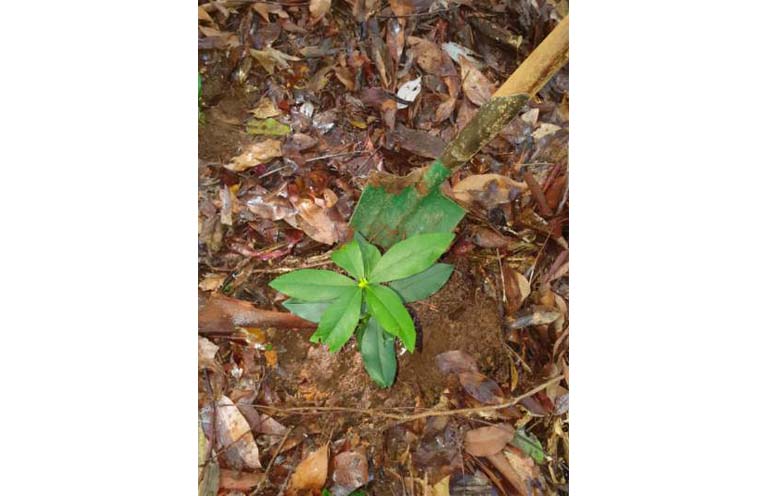
BOTANISTS and Coffs Harbour Coastal Works horticulturists are doing their best to save two rare plants discovered during Transport for NSW’s Environmental Impact Statement (EIS) required in the planning stages for the Coffs Harbour bypass.
“These two new species are the Fontainea allied to F. oraria (Lennox Head Fontainea), and a species of Pittosporum, Pittosporum Koronense, that differs in several characteristics from other known species of that genus,” a spokesperson from Transport for NSW told News Of The Area.
 Advertise with News of The Area today.
Advertise with News of The Area today.It’s worth it for your business.
Message us.
Phone us – (02) 4981 8882.
Email us – media@newsofthearea.com.au
Tasked by Transport for NSW, Coastal Works horticulturalists made the second collection of Pittosporum Koronense on Tuesday 28 March at the site in Korora.
When the botanists identified the specific type of Fontainea as the last two remaining plants of their type on Earth and the Pittosporum Koronense as the only remaining patches left on Earth, the botanists and environmentalists fought for a realignment of the bypass to avoid the ancient remnants containing these rare plants.
They were turned down by Transport for NSW.
It has now become a rescue mission, albeit in the hands of Transport for NSW, which has engaged Coastal Works to do the translocation of the plants.
According to horticulturists involved, the Pittosporum is an easy plant to propagate, particularly this species, as it grows with a group of rhizomes that allow the underground roots to shoot off really well.
However the Fontainea is thought to be more difficult to translocate and is therefore at high risk.
The botanists NOTA have spoken to say it’s careless and even reckless to attempt the relocation of these plants.
Under Transport for NSW, the North Coast Botanical Gardens had previously collected cutting material (leaf material only) from the Pittosporum Kororoense in mid-2022.
The translocation team believe with the second collection of rhizomes and their newly suckering shoots, which were missed in the first translocation, that they should end up with several hundred potted plants to put back on the Korora site and other suitable locations.
A spokesperson for Transport for NSW told NOTA, “Transport for NSW is committed to protecting and minimising impacts on the two new species discovered during the Coffs Harbour bypass project.
“Translocation works for the Pittosporum Kororoense were carried out in accordance with the approved management plans developed in close consultation with species experts and the NSW Biodiversity Conservation Division.
“These impacted Pittosporum Kororoense were relocated to nominated receival sites that will be protected in perpetuity via Biodiversity Stewardship Agreements.
“Transport for NSW is very pleased with the success of the translocation, with thousands of the individual salvaged Pittosporum Kororoense currently growing at the receival sites.
“Fontainea sp Coffs Harbour has also been successfully propagated by a University of Sunshine Coast team from cuttings and seed collected in accordance with the approved management plan.
“Like the Pittosporum plants, the propagated Fontainea will be planted at the nominated receival sites and protected in perpetuity by Biodiversity Stewardship Agreements and with the approval of National Parks and Wildlife Services within an NPWS estate.
“The two ancient species were discovered by Dr Andrew Benwell, the botanist and specialist in threatened species translocation engaged by Transport, during pre-translocation surveys of the Rusty Plum.
“If it wasn’t for the Coffs Harbour bypass surveys, these plants may never have been discovered,” the spokesperson said.
By Andrea FERRARI

